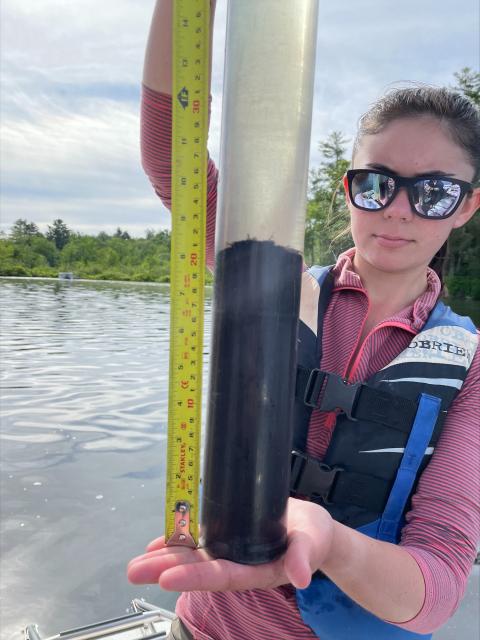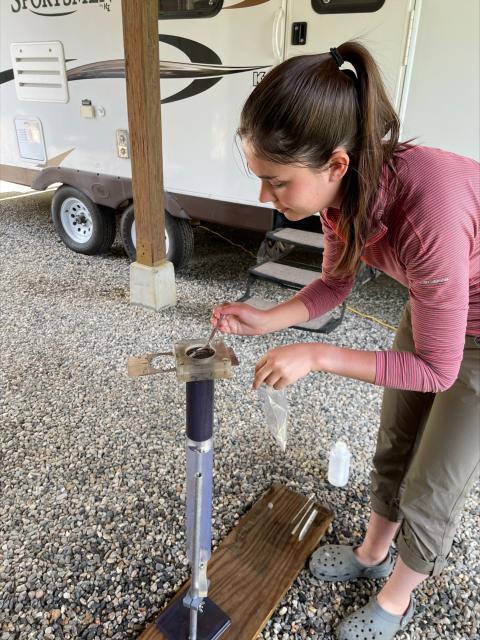This past spring semester, I did not know that I wanted to or was going to do a Summer Undergraduate Research Fellowship (SURF) USA. In fact, I had never heard of it. Instead, I had my eyes set on several Research Experiences for Undergraduates (REU). When I found out I was not accepted to any of them, I slightly panicked because I thought the application window for summer programs was closing. I spoke to Dr. Ruth Varner, who is my advisor for an accelerated master’s program, and she directed me to the SURF program. We came up with a research plan together and I was thrilled when I discovered I was awarded the fellowship!

The overarching goal of my project was to determine if temperature impacts production rates of methane, a powerful greenhouse gas, in lake sediments. The big picture was to understand how rising global average surface temperatures would impact methane cycling in lake ecosystems. I chose to focus on Harvey Lake in Northwood, NH, because it is local to me and UNH. After taking a few days to prep my equipment and learn pertinent skills, Dr. Varner and my dad assisted me on a boat to collect sediment cores. Afterwards, we sectioned the cores by sediment depth to see if that plays a role as well. This was my favorite day of the whole summer experience because I got to be outside and physically involved with my work. I wish I had more days like that, but not all research requires the same field work, lab work, and office work ratio.
The next several weeks of my project were spent in the Trace Gas Biogeochemistry Lab at UNH preparing my vials with sediment and processing them. This involved placing samples in incubators (instruments that hold samples at specific temperatures) all over campus at several predetermined temperatures. The incubators were in different professor’s labs that aligned with their own research objectives, thus making it more challenging to organize my vials. Samples were kept in the incubators for a week at a time. I extracted gas from the headspace of the vials each day and ran them in the lab’s gas chromatograph. I learned so much during this phase of my project. I was mentored on how to operate and care for the lab equipment as well as gain a deeper understanding of the research process. It takes a lot of time and patience to ensure no steps are skipped. This is very important because it ensures the integrity of the results.

Following the lab work, I had a lot of numbers to analyze from the gas chromatograph. The remainder of my SURF was spent working on my computer to complete numerous calculations on the raw data to achieve the units and type of data I desired to examine. I recently completed this and next I will explore different computer software systems that will help me create graphs and other visual representations of my data. This will help me understand my results so that I can try to make sense of it all. This is another aspect of the research process that I have little experience with, so I plan to consult my faculty mentor and other members of our lab team regularly to ensure I complete each step thoroughly and correctly. Even though this was my independent project, there was still a lot of teamwork involved. There is always more to gain by sharing experiences and knowledge.
Although a SURF grant was not my original summer plan, it ended up being exactly what I needed at this stage in my education. Before this, I had some experience with each piece of the research process, but I had never put it all together and completed a project from start to finish. I have noticed the impact this project has had on me. Not only am I more aware of the smaller details and steps involved with research, but I now have a bigger picture of what scientific research looks like. This is essential for helping me determine my next step and where my interests lie in my educational career and beyond. I am very grateful to the UNH Hamel Center for Undergraduate Research for granting me this opportunity and for their support in funding my project.
